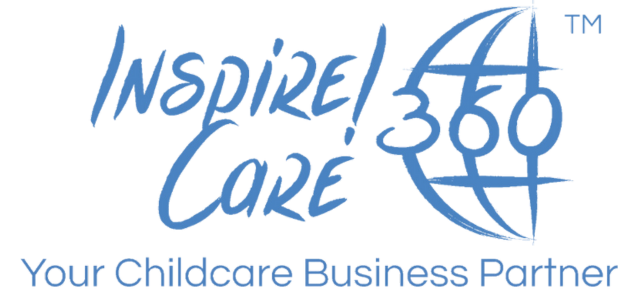
In today’s fast-paced world, effective financial management is paramount for childcare business owners. We recently hosted a webinar featuring two experts from RDG+Partners, Nate Pensgen and John Rizzo. They shared valuable insights that can help you take charge of your financial health and enhance the performance of your childcare business. In this blog post, we’ll discuss the key takeaways from this informative session.
1. Set Clear Financial Goals
The first step to ensuring financial stability is setting clear, achievable goals. Whether it’s increasing profits, reducing expenses, or expanding your business, these objectives guide your financial decision-making.
2. Create a Monitoring Schedule
To keep your financial house in order, establish a regular schedule for monitoring your financial health. Set deadlines for reviewing your finances, making necessary adjustments, and assessing your progress.
3. Monthly Budget vs. Quarterly Review
Nate suggested aiming to create a monthly budget to keep your finances on track. However, if monthly budgets feel overwhelming, don’t be discouraged. Quarterly financial reviews can be equally effective, helping you maintain financial control.
4. Year-Over-Year Comparisons
Don’t forget the importance of year-over-year comparisons. These comparisons provide insights into how your childcare business is progressing and highlight areas that require attention.
For effective tax planning, use Year-to-Date (YTD) financial data and make estimates for the remainder of the year. This approach ensures your tax strategies align with your actual financial circumstances.
6. Consider Income Tax Reductions
Explore avenues to reduce your income taxes. Nate advised examining deductions and credits available for childcare business owners.
7. Review Tax Plan Scenarios
To make informed decisions, explore different tax plan scenarios. Assess the impact of each scenario on your business and take action accordingly.
Learn about the various retirement plans available to childcare business owners, such as 401(k) plans, Individual Retirement Account (IRA) plans, and more. Each has its unique features and benefits.
9. Accelerated Depreciation: ‘Section 179’
Nate also discussed accelerated depreciation, particularly ‘Section 179.’ Understanding this tax provision can help you reduce tax liability and improve your financial position.
Understanding qualified business income and how it relates to your childcare business is essential. This knowledge can help you make informed decisions regarding your financial health.
11. Rent and Wages
John and Nate highlighted the significance of rent and wages in the context of tax planning. Recognizing their impact and optimizing them can contribute to financial stability.
12. The Timing of Tax Planning
Lastly, it’s essential not to procrastinate when it comes to tax planning. Waiting until the last minute can lead to missed opportunities and undue stress. Start your tax planning early to ensure you make the most of available tax strategies.
Procrastination is the enemy of effective financial planning. Start early and give yourself ample time to implement and adjust your financial strategies.
14. Don’t Forget Non-Tax Considerations
When planning your finances, don’t solely focus on tax-related matters. Consider non-tax factors that can significantly influence your financial health.
15. Don’t Neglect Accurate Books and Records
Accurate bookkeeping is the foundation of successful financial management. Neglecting your books and records can lead to costly mistakes and misinformed decisions.
Financial success in the childcare business industry hinges on well-structured financial planning and tax strategies. The insights shared by Nate Pensgen and John Rizzo during our webinar are invaluable tools for childcare business owners looking to master their financial health.
Don’t forget to regularly monitor your financial health, set clear goals, and explore different tax planning scenarios. By avoiding common pitfalls and making informed decisions, you can take control of your childcare business’s financial future. Start implementing these strategies today to secure a brighter tomorrow.
Setting the Foundation: Your Financial House
Before diving into the intricate world of financial management, it’s essential to set the foundation for success. Nate Pensgen emphasized the significance of having a well-structured financial plan. Here are some key points:1. Set Clear Financial Goals
The first step to ensuring financial stability is setting clear, achievable goals. Whether it’s increasing profits, reducing expenses, or expanding your business, these objectives guide your financial decision-making.
2. Create a Monitoring Schedule
To keep your financial house in order, establish a regular schedule for monitoring your financial health. Set deadlines for reviewing your finances, making necessary adjustments, and assessing your progress.
3. Monthly Budget vs. Quarterly Review
Nate suggested aiming to create a monthly budget to keep your finances on track. However, if monthly budgets feel overwhelming, don’t be discouraged. Quarterly financial reviews can be equally effective, helping you maintain financial control.
4. Year-Over-Year Comparisons
Don’t forget the importance of year-over-year comparisons. These comparisons provide insights into how your childcare business is progressing and highlight areas that require attention.
Tax Planning: A Vital Component
5. Use YTD Plus EstimatesFor effective tax planning, use Year-to-Date (YTD) financial data and make estimates for the remainder of the year. This approach ensures your tax strategies align with your actual financial circumstances.
6. Consider Income Tax Reductions
Explore avenues to reduce your income taxes. Nate advised examining deductions and credits available for childcare business owners.
7. Review Tax Plan Scenarios
To make informed decisions, explore different tax plan scenarios. Assess the impact of each scenario on your business and take action accordingly.
Retirement Planning: Securing Your Future
8. Types of Retirement PlansLearn about the various retirement plans available to childcare business owners, such as 401(k) plans, Individual Retirement Account (IRA) plans, and more. Each has its unique features and benefits.
9. Accelerated Depreciation: ‘Section 179’
Nate also discussed accelerated depreciation, particularly ‘Section 179.’ Understanding this tax provision can help you reduce tax liability and improve your financial position.
Exploring Additional Insights
10. Qualified Business IncomeUnderstanding qualified business income and how it relates to your childcare business is essential. This knowledge can help you make informed decisions regarding your financial health.
11. Rent and Wages
John and Nate highlighted the significance of rent and wages in the context of tax planning. Recognizing their impact and optimizing them can contribute to financial stability.
12. The Timing of Tax Planning
Lastly, it’s essential not to procrastinate when it comes to tax planning. Waiting until the last minute can lead to missed opportunities and undue stress. Start your tax planning early to ensure you make the most of available tax strategies.
What NOT to Do
13. Don’t Wait Until the Last MinuteProcrastination is the enemy of effective financial planning. Start early and give yourself ample time to implement and adjust your financial strategies.
14. Don’t Forget Non-Tax Considerations
When planning your finances, don’t solely focus on tax-related matters. Consider non-tax factors that can significantly influence your financial health.
15. Don’t Neglect Accurate Books and Records
Accurate bookkeeping is the foundation of successful financial management. Neglecting your books and records can lead to costly mistakes and misinformed decisions.
Financial success in the childcare business industry hinges on well-structured financial planning and tax strategies. The insights shared by Nate Pensgen and John Rizzo during our webinar are invaluable tools for childcare business owners looking to master their financial health.
Don’t forget to regularly monitor your financial health, set clear goals, and explore different tax planning scenarios. By avoiding common pitfalls and making informed decisions, you can take control of your childcare business’s financial future. Start implementing these strategies today to secure a brighter tomorrow.


